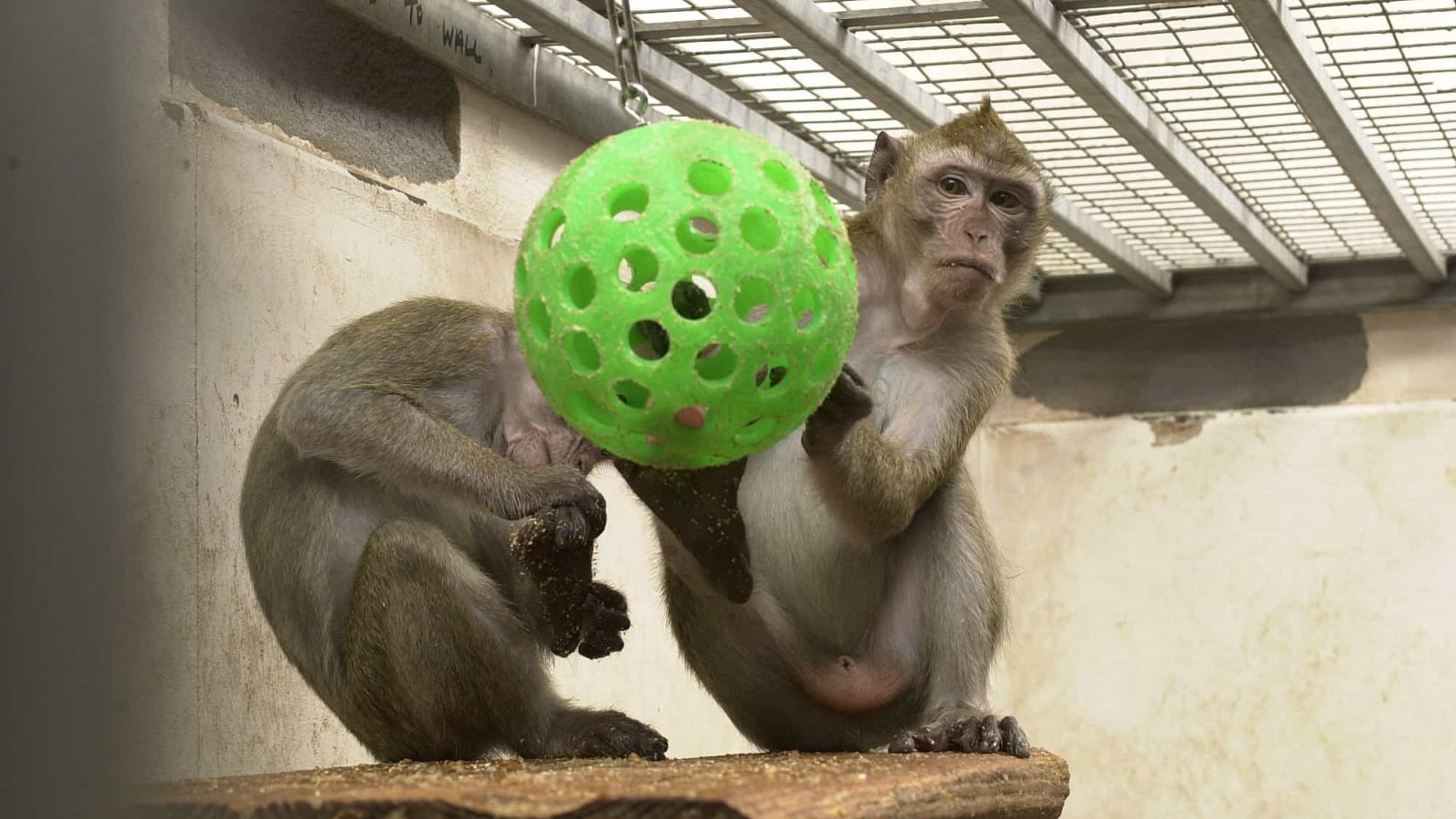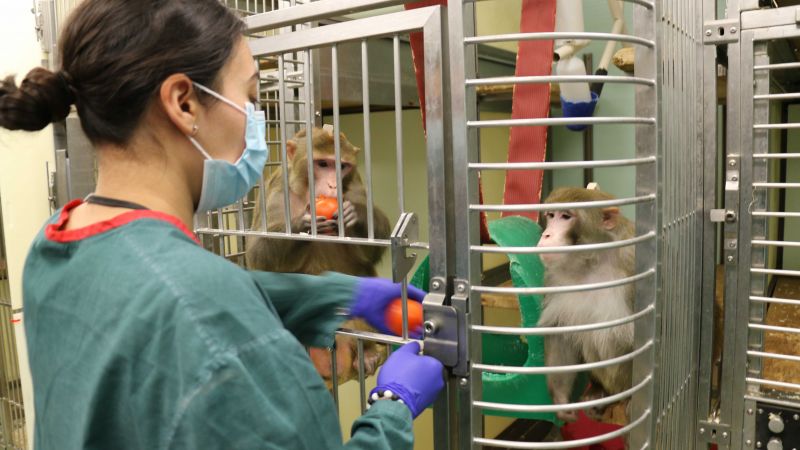
Scientists have produced four infant monkeys using a technique which could stop women with genetic diseases from passing them on to their children. Faulty DNA contained within cell structures called mitochondria was replaced by healthy mitochondrial DNA (mDNA) from a donor egg, so the faults were not passed from mother to baby.
Defects in mitochondria affect one in 200 births and are serious for about one in 6,500 births. The new technique – called spindle transfer – has the potential to eradicate types of fatal liver failure, blindness, diabetes and deafness, as well as a type of muscular dystrophy called mitochondrial myopathy which currently affects about 3,500 people in the UK. mDNA also plays a role in neurodegenerative diseases such as Alzheimer's, Parkinson's and Huntington's.
DNA is mainly confined to two structures within cells – the nucleus and the mitochondria. Mitochondria are the powerhouses of cells, converting food into energy that the body can use. The mDNA contained within them comprises less than 1% of all the DNA in the body and affects how cells convert food into energy. All the other genes that determine our characteristics are located within the nucleus.
mDNA is passed from mother to child by egg cells; sperm cells do not transmit mDNA. The team took egg cells from macaque mothers and from donor macaques. They then removed the nuclei from both sets of eggs, transplanting the mother's nucleus into the donor egg. They then fertilised the eggs using IVF technology, and transplanted them into surrogate monkeys. The technique resulted in four healthy babies, including a set of twins.
Because spindle transfer does not involve moving the mitochondria, which are incredibly delicate and prone to damage, scientists believe that the move from animal to human trials could happen within two to three years, although the health of the baby macaques will need to be monitored for some time.
Last edited: 22 July 2025 11:55



